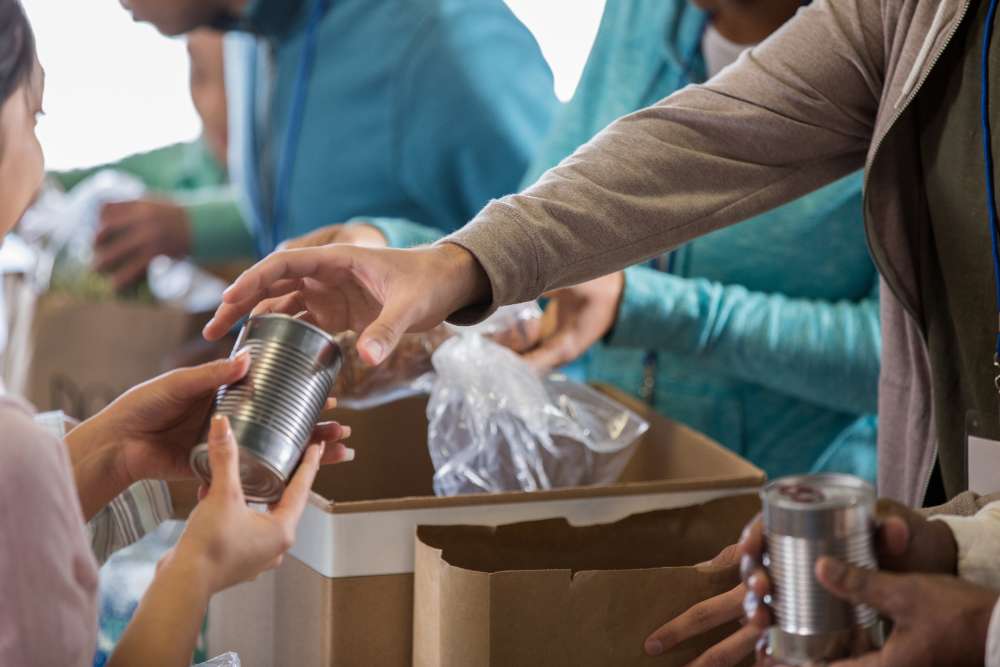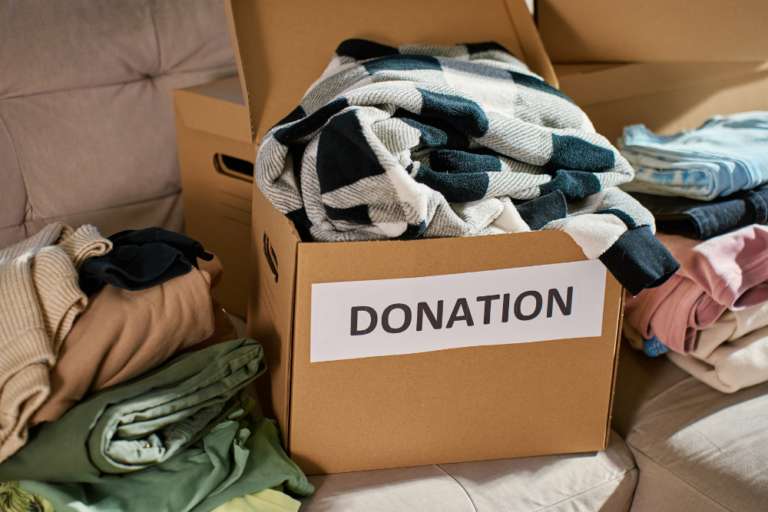
Why Recycling Is the Most Responsible Option for Junk Disposal
September 17, 2025
How to Properly Dispose of Electronics and Appliances the Green Way
September 18, 2025The Role of Donation Pickup Services in Reducing Waste
In today’s world of rapid consumption, countless items are discarded long before they reach the end of their usefulness. Furniture, clothing, electronics, and household goods often end up in landfills despite having potential to serve another family or individual in need. Donation pickup services bridge this gap by offering an alternative to waste. Instead of tossing away what seems unwanted, these services provide a convenient path toward reusing, repurposing, and redistributing items that still hold value. By connecting generosity with sustainability, donation pickups reduce waste and promote a cycle of mindful consumption.
Creating second chances for unwanted goods
One of the most direct benefits of donation pickup services is the opportunity to give unwanted items a second life. Many households accumulate furniture, clothing, or electronics that are still in good condition but simply no longer fit their needs. Without proper avenues for reuse, these belongings often end up abandoned or sent to the landfill, contributing to unnecessary waste. Donation pickups change this outcome by redirecting such items toward organizations and individuals who can use them.
This practice not only diverts waste but also fosters a culture of gratitude and sharing. Families in need gain access to essentials at little to no cost, while donors experience the satisfaction of knowing their belongings serve a purpose beyond gathering dust. Instead of perpetuating the throwaway mindset, donation pickup services remind communities that value exists in what others overlook. This small shift transforms clutter into opportunity, reinforcing sustainability through simple everyday actions.

Reducing landfill pressure with community efforts
Every year, landfills grow larger under the weight of items that could have been reused or repurposed. Furniture, textiles, and appliances are particularly heavy contributors to this strain, often filling valuable space with items that remain functional. Donation pickup services alleviate this burden by keeping reusable goods out of the waste stream. What could have been buried under layers of garbage is instead redirected toward meaningful use, reducing pressure on local waste management systems.
Community participation strengthens this impact even further. When households and businesses embrace donation pickups as part of their disposal routine, the cumulative effect becomes significant. Less waste in landfills means fewer emissions from decomposing materials and less environmental damage from overcrowded disposal sites. The collective choice to donate rather than dump transforms local waste management into a more efficient, sustainable model. Through shared responsibility, communities make waste reduction a practical and achievable goal.
Promoting a culture of sustainability in households
Sustainability often begins at home, and donation pickup services provide a tangible way to incorporate eco-conscious habits into daily life. Instead of discarding items that feel outdated or unnecessary, families can schedule a pickup and ensure their belongings find new purpose. This small action reinforces a broader cultural shift toward valuing resources and extending the lifecycle of consumer goods. Each decision to donate rather than discard reflects an intentional choice for sustainability.
Over time, these choices add up to a meaningful lifestyle change. Children raised in households where items are donated rather than thrown away learn to see value beyond ownership. Adults, too, begin rethinking their consumption habits, leaning toward durable purchases and mindful shopping. By embedding donation practices into household routines, families strengthen their role in reducing waste and protecting the environment. In this way, sustainability is not just discussed—it becomes an active, daily practice.
Supporting local charities and nonprofit organizations
Donation pickup services act as a bridge between donors and the charities that rely on these contributions to function. When households or businesses give away items they no longer use, they directly support local nonprofits that can distribute these goods to families in need. Furniture, appliances, and clothing that might otherwise gather dust become critical resources for charitable programs.
This system not only reduces waste but also strengthens social safety nets within the community. Nonprofits can redirect financial resources away from purchasing essentials and focus on providing expanded services. Donation pickups streamline this process by making it easy for donors to give without transporting items themselves. As a result, local charities thrive while reusable goods find new homes. This mutually beneficial cycle highlights how waste reduction and community support are deeply intertwined, proving that sustainability extends far beyond environmental protection alone.
Minimizing carbon footprints through reuse
Every manufactured item carries an environmental cost. From the energy spent extracting raw materials to the emissions generated in production and transportation, the carbon footprint of consumer goods is significant. When these items are discarded prematurely, all that energy is wasted. Donation pickup services offer an alternative by extending the lifespan of goods, ensuring that the resources invested in their creation continue to provide value.
By promoting reuse, communities lower demand for new production and indirectly reduce greenhouse gas emissions. For instance, when a sofa is donated instead of discarded, it prevents the environmental impact of manufacturing a replacement. The ripple effect reaches beyond individual households, contributing to regional and even global sustainability goals. Choosing donation pickups is not only about preventing waste but also about shrinking carbon footprints. This simple step demonstrates how small, practical decisions collectively contribute to a cleaner, more sustainable environment.
Encouraging businesses to adopt greener practices
Businesses generate substantial amounts of waste when offices upgrade furniture, technology, or equipment. Without proper disposal options, these materials often end up in landfills. Donation pickup services offer businesses a practical, eco-friendly alternative. By donating usable items, companies reduce their environmental footprint while benefiting local charities and organizations. This approach creates a cycle of reuse that extends beyond residential households.
Adopting donation practices also enhances a company’s reputation. More consumers are choosing to support businesses with visible commitments to sustainability. By incorporating donation pickups into waste management strategies, companies demonstrate responsibility not only to the environment but also to their community. The decision to donate aligns business goals with broader environmental values, creating goodwill among customers and employees alike.
Making decluttering easier and more meaningful
Decluttering is a universal experience, yet it often raises the question of what to do with items that no longer serve a purpose. Donation pickup services provide a simple, meaningful answer. Instead of struggling with the logistics of hauling furniture, clothing, or electronics, individuals can arrange for a convenient pickup. This ease of use transforms decluttering from a stressful chore into an opportunity to make a difference.
The process carries emotional benefits as well. Donors often find comfort in knowing that their belongings will be repurposed rather than discarded. This perspective shifts decluttering from an act of disposal to one of generosity. By scheduling donation pickups, households not only clear their spaces but also support others in need.
Preventing unnecessary production and consumption
Donation pickup services help slow the cycle of overproduction by extending the use of existing goods. Every time an item is reused, it reduces the need for new manufacturing. This ripple effect minimizes the strain on natural resources and lessens environmental damage caused by industrial production. Choosing to donate rather than discard interrupts the cycle of consumerism that fuels waste.
The practice also encourages more thoughtful buying decisions. When individuals see the positive impact of donating, they become more aware of their consumption patterns. Instead of purchasing impulsively, they begin to consider long-term value and durability. Donation pickups therefore serve as a reminder that every purchase has an environmental consequence.
Strengthening community bonds through shared responsibility
Donation pickup services foster a sense of shared responsibility within communities. When residents come together to donate and support local causes, they create a network of mutual aid and environmental stewardship. This collaboration reduces waste while reinforcing the idea that sustainability is a collective effort. Individuals realize their small actions gain strength when combined with the contributions of others.
The act of donating becomes a unifying experience that transcends waste management. Neighborhoods benefit when resources are redistributed to those in need, and participants gain pride in their contributions. Over time, this shared responsibility strengthens social connections and builds resilient communities. By supporting donation pickups, residents not only reduce waste but also invest in the well-being of their neighbors.
Inspiring future generations to value sustainability
The long-term success of sustainability efforts relies on the habits passed to younger generations. Donation pickup services provide a powerful example for children and teens, showing that items still hold value even when no longer wanted. Witnessing their families participate in donations instills lessons about resourcefulness, responsibility, and generosity.
These early experiences often translate into lifelong values. Young people who grow up with donation practices are more likely to embrace sustainable living as adults, whether through recycling, repairing, or reusing. By normalizing donation pickups, communities cultivate a culture of awareness that continues into the future. The simple act of giving away usable items becomes a cornerstone of environmental education.
Conclusion
Donation pickup services demonstrate how small choices can generate big change. By redirecting usable goods away from landfills, they reduce waste, conserve resources, and minimize carbon footprints. These services also strengthen communities, providing essential support to charities, fostering shared responsibility, and inspiring future generations to live sustainably. Beyond environmental benefits, donation pickups create opportunities for generosity, convenience, and meaningful action in everyday life. For those in Santa Rosa, CA, North Bay Junk Removal offers reliable junk removal services that prioritize sustainability and community impact. Their donation-focused approach ensures that usable items are repurposed instead of discarded, creating a cleaner and more supportive environment for everyone. To schedule a service or learn more about their eco-friendly junk removal solutions, contact North Bay Junk Removal at 707-478-6817. By choosing mindful disposal today, residents help reduce waste and build stronger, greener communities for tomorrow.




